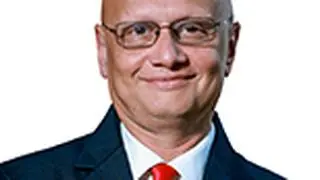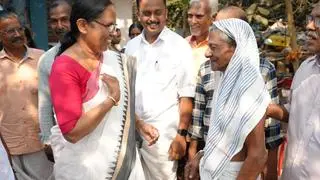Students in Tamil Nadu, especially those who have studied the State government syllabus, are happy that the Centre promulgated an ordinance to do away with the Supreme Court mandated National Eligibility-cum-Entrance Test (NEET) this academic year. There are others who feel that, in the long run, it will be better if Tamil Nadu follows the NEET, in the interest of quality of education.
Neeraja Senthil, an MBBS aspirant, was walking on egg shells till the announcement of the ordinance. She had studied in a Tamil medium school and hardly had a few months to prepare for NEET; she was not sure if she would get through the entrance test and gain admission to a medical college.
“But now, there is a chance,” she says joyfully. Senthil has a cut-off score of 189 out of 200 and she is confident of getting into one of the government medical colleges in the MBC category.
Senthil is among the many medical college aspirants who are rejoicing that they do not have to take the entrance test. But many feel that permanent exemption is not a good option as it will affect the quality of education.
Venkat Raghav, a higher secondary teacher in a private school, said, “It might not be in the best interest of students studying under the State syllabus to have the national test now but permanent exemption is not wise.”
Currently, students in Tamil Nadu are admitted based on their Class 12 scores. While these students find it easy get into colleges, score normalisation affects the prospects of students under CBSE, Matriculation and ICSE streams. . “Bringing in common entrance exam will put everyone on an equal footing. So, it is imperative to implement entrance exams that will benefit students in the long run,” says Raghav.
Sridhar M, a higher secondary teacher in a government school, said NEET is a welcome move but implementing it now will affect the students. While urban population has better access to private tutorials, rural children will largely be affected. “But that does not mean we should compromise on quality education,” he added.
The State syllabus has not undergone any change since 2005 and the State exam pattern does not test the students’ understanding of subjects. “If you take Mathematics, more often than not, the State exam paper will have same questions as in the text book. So, the exams do not really test a student’s aptitude,” Sridhar said.
Given these circumstances, having NEET will only be a disadvantage for majority of the students in Tamil Nadu, according to him.
Meenakshi M, a college lecturer, said students should be equipped to take exams that test their understanding, which is not the case now. “As it is, many students who get into prominent educational institutions find it difficult to cope with the system of education there and many drop out ,” she said.
“NEET, though necessary, efforts should be put into changing the way exams are conducted and making syllabus on par with CBSE before its implementation,” Meenakshi added.
Tamil Nadu Chief Minister J Jayalalithaa, however, wants Tamil Nadu to be permanently exempted from the NEET system in the interest of rural students.
In Tamil Nadu, common entrance examinations for professional undergraduate courses were abolished by the Tamil Nadu Admission in Professional Educational Institutions Act, 2006 in the interest of socially and economically backward meritorious rural students. For admission to post-graduate courses, the Tamil Nadu government gives preference to those who have served in rural areas, especially those working in hilly and tribal areas.
In a statement, Jayalalithaa said, “The introduction of NEET would nullify the implementation of these policy initiatives and socio-economic objectives of the State, as the regulations for a national test may not have such enabling provisions. The national test is out of tune with the prevailing socio-economic milieu and administrative requirements of Tamil Nadu.”






Comments
Comments have to be in English, and in full sentences. They cannot be abusive or personal. Please abide by our community guidelines for posting your comments.
We have migrated to a new commenting platform. If you are already a registered user of TheHindu Businessline and logged in, you may continue to engage with our articles. If you do not have an account please register and login to post comments. Users can access their older comments by logging into their accounts on Vuukle.